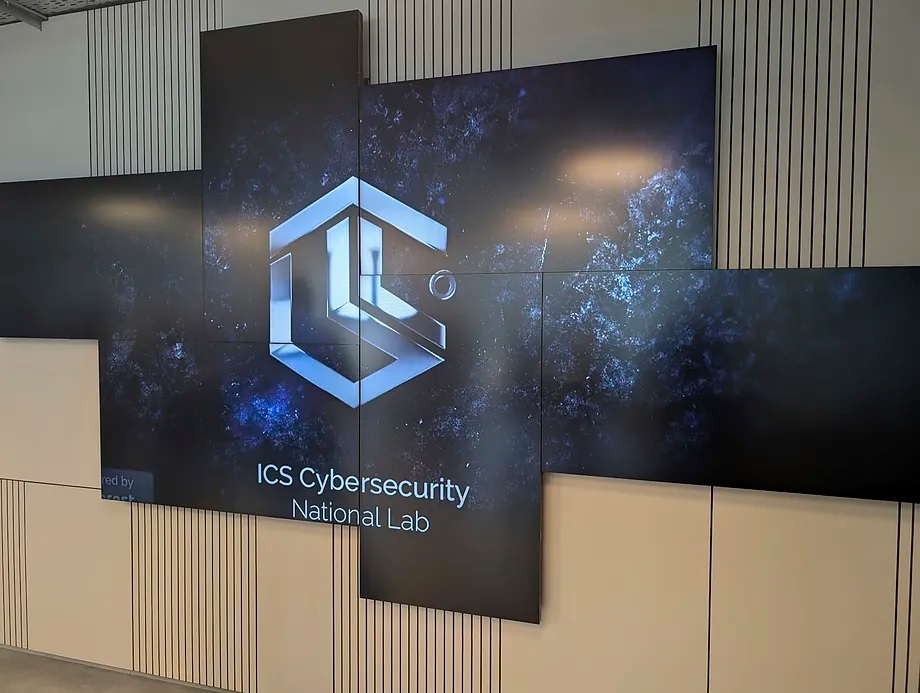Apparently, it looks like another nondescript building in the technology park of Beerseba, a city in the middle of the desert where skyscrapers of tech companies stand out in a landscape marked by limestone tones and the absence of vegetation. However, as you ride the elevator and approach the threshold of the door, a sign with red dots warns in several languages that taking photographs is strictly prohibited. It is the gateway to one of Israel's most sensitive facilities: the National Laboratory of Cybersecurity for Industrial Control Systems (ICS Cyber-Security National Lab), a center where miniature power plants and critical infrastructures are replicated. These are subjected to constant tests of hacking, sabotage, attacks, and failures by the government, armed forces, companies, and universities to observe their behavior in the face of a potential aggression or massive failure. In short, it is an environment to rehearse and prevent collapses like the one experienced last Monday in Spain.
The visit by EL MUNDO to these facilities in Israel took place weeks before the blackout that left the entire Iberian Peninsula without electricity supply. Events that the government attributes to a sudden loss of 15 gigawatts, equivalent to 60% of the national electrical demand. Meanwhile, the National Court is investigating the events under secrecy and does not rule out a possible cyber sabotage as the cause of the incident.
A wide range of scenarios that in the National Cybersecurity Laboratory of Israel are not just theories but the daily work routine. "We focus on critical infrastructures and the attacks they suffer," explains one of the center's officials to this newspaper. After a brief briefing at the entrance, there are security doors that lead to a huge glass-walled fish tank resembling a technological hangar. Inside, there are functional models - or simple replicas - of power plants about three meters high, water treatment stations, and a factory that, as in the real world, are interconnected.
The two power plants inside this fish tank are built with real equipment from companies like Siemens, Allen Bradley, or Schneider Electric, which are used in real facilities in countries like Spain, Israel, or Germany. Within this cubicle, both installations provide power to a desalination plant connected in turn to the factory. The goal is not only to analyze what happens if a facility fails but also to study the possible chain effects of a collapse.
"The idea is to recreate all the scenarios we can imagine: breakdowns, cyber-attacks, sabotage, overloads... and see how the plants respond and behave in the face of these incidents to collect data and apply that knowledge in the real world," details the official while, on the other side of the room, a man carries out an attack on the factory model using the parking sensors as the entry vector. "For an attack, all you need is a small computer and some form of internet connection," he warns.
With mobile phones prohibited in the laboratory, surveillance cameras pointing even at the restroom entrances, and constant accompaniment of visitors, one understands the seriousness of the tests carried out inside this laboratory located next to the desert, where the phrase "I can't answer that" is repeated when asked specific questions about how many incidents have been prevented, what kind of vulnerabilities, failures, or reactions have been discovered, or about the budget that the Israeli government allocates to this center, which the guide estimates at "tens of millions of euros" each year.
In the management of these facilities, which depend on the office of the Prime Minister, Benjamin Netanyahu, scientists from the neighboring Ben-Gurion University, government officials, Intelligence services, and occasionally international experts as guests participate.
"It's not just about preventing attacks, but also about understanding how the system behaves when something fails," explains one official. That is why, in addition to sabotage and viruses, human errors, voltage spikes, or mechanical failures are also simulated and studied. In short, subjecting the electrical grid to all kinds of dirty tricks to know how it behaves and what consequences it would have.
In order to prevent a widespread blackout like the one in Spain, Israel learns from this laboratory and has implemented a complex national security system to protect its electrical infrastructure, based on temporary substations, backup generators, and isolated networks that can operate without external connection so that hospitals, water plants, and military bases can function under any circumstances.
"Energy is more critical than data," summarizes the plant's official. His statement gains relevance this week, as Spain tries to return to normalcy after the largest blackout in its recent history. What was a surprise in Madrid is part of a routine work hypothesis in the Beerseba laboratory.
